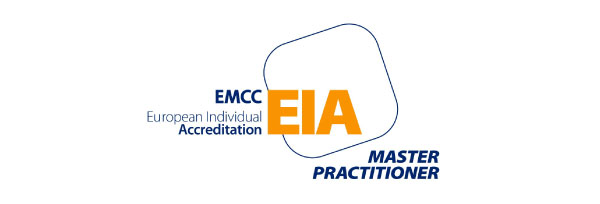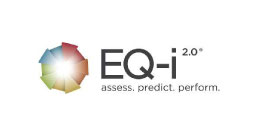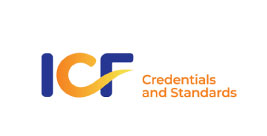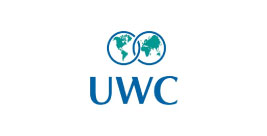
I’m Gowri S Ramani, your Executive Coach, and am very happy to welcome you here! I am currently in my 5th year as an Executive Coach, doing leadership coaching and executive coaching for senior leaders incorporate/not-for-profit organizations.
I was a C-Level corporate leader, with rich experience as a technologist, business leader, change-maker, and facilitator, across 4 continents in top technology/telecom companies before training as an Executive Coach!
I am one of the very few executive coaches globally to have been awarded Master Coach credentials of ICF-MCC and EMCC-MP, and only the 5th in India. It is also special that this was achieved within a span of under 5 years.
I am honored to be listed on the coach foundation as Top Executive Coach.
As an executive coach, I’m warm, supportive, empathetic yet challenging. My strengths include the ability to surface underlying self-limiting beliefs, internal contradictions in leaders and their leadership. Partnership with me also helps with better self-awareness of your Beliefs, inspirations, fears/inner critic, passions, feelings, self-talk that influence your habits, actions, and decisions that may or may not be serving you well.
You will be seeing the image of fractals occurring in nature on top of each page. Why?
A fractal is a never-ending pattern. Fractals are infinitely complex patterns that are self-similar across different scales. Somewhat like our habits? Our habits become like fractals, showing up in repetitious, never-ending loops unless we choose to break or change them! Executive Coaching is one of the most effective ways of bringing sustained change in ourselves.
My clients, typically C-Suite and Senior Corporate Executives from Corporates and Not-For-Profit organizations, often talk about clarity, confidence, and awareness about new possibilities and how to achieve them as key takeaways of being coached by me.
I have coached for 2500+ hours, working with 200+ leaders from about 5 continents: North & South America, Asia, Europe, and Africa.
I am a passionate believer in the infinite ability of humans to evolve and grow! I have lived this belief as demonstrated by my own professional journey from a technologist to now an executive coach.
My coaching philosophy is anchored on Reflection on Past, Reframing the Present, and Reimagining to create new possibilities and a more successful and fulfilling future!


Reflecting on the past provides a context for where one’s beliefs and values are anchored and enables a new way of looking at them. Understanding one’s self-limiting beliefs can be liberating and open new perspectives!

Reframing is a powerful mechanism of looking at a situation from a new perspective. Deep reflections during coaching enables new awareness leading to reframing of past and current situations, empowering a person to think and act beyond what was possible earlier.

Reimagining a new future, with clarity and confidence, becomes possible with reframed perspectives. During coaching, we partner with the coachee to help them envision and work towards more fulfilling and successful futures.
Curious to know more? Follow the links for knowing more about Me, Executive Coaching, My clients and My Program offerings.
Gowri helped me to change my perception of myself!
I had 4 months 1-2-1 coaching experience with Gowri on CoachHub platform. It was time for myself and about myself. I started with a very clear objective and I fully achieved it at the end.
Thanks to Gowri she navigated me very gently, with very deep questions, with her wisdom, examples from her experience, and big compassion. These sessions shaked me well, inspired to explore the inner teritorry, and find the anwers inside me.
I have got an understanding that I don’t need to be the best, I recognized my achievements and myself, I identified my competitive advantage and my inner power. All this led to calmness and self-confidence.
Thank you, Gowri, for navigation, acceptance, compassion and human support!
I found value in being coached by Gowri.
What I really appreciated about Gowri is her keen sense of listening for not just the words that are spoken, but also for how they are spoken, the body language with which they are shared, as well as what is left unsaid. She, therefore, became a really good mirror for me, and asked a lot of powerful questions, which allowed me to introspect more deeply and bring to light what is important and what is not so important to me, and for that I am grateful.
I have been lucky to meet Gowri while participating in a coaching program made available by the ICRC. Gowri has an extensive and diverse work experience, that took her from senior positions in the tech industry to corporate strategy advisor, eventually becoming a coach. What I appreciated most, beyond her kind presence and availability, is the way Gowri structured our partnering throughout the coaching program. A genuine active listening, completed with a soft way to share experiences and bring to the table the important points was key in establishing trust, helping to smoothly narrow down the key matters of discussion. Added to her calm ways to say what is important, her natural authority helped gain insight and perspectives over things. Building-up on her feedbacks to flip around the challenges, Gowri knows how to give time and space for you to see by yourself, in an introspective way, which steps taking next to keep improving things. It was a pleasure to meet over these days and I recommend any manager in need of coaching to approach Gowri to set-up a work program that will for sure help you get precious insight about your management style and offer solid guidance in any leadership challenges you may face. Thank you Gowri!
Executive Coaching is one of the most personalized development support an employee can get. All companies want to grow and thrive. To grow and thrive they need to have employees and leaders who are growing and thriving not just in terms of designations and corporate ladder but in terms of who they are as leaders and how much of an impact they can bring into the organization and how they are able to create other leaders.
Executive Coaching and leadership coaching is the most personalized way of providing support. For any company which is interested in growing and taking care of their employees and supporting them to grow, executive Coaching is one of the best approaches.
Available programs for executive coaching in India
Leadership Coaching is typically one of the many interventions a company runs at any point in time.
Hence, while it is extremely difficult to directly correlate a business result to coaching only, there are many examples of how coaching has impacted an organization.
One of the best examples of seeing results of executive coaching globally is Google. A research project at Google called “Oxygen” was done in 2008 to understand the value and the impact of having good managers.
To help managers get better, nee of the actions taken was to introduce extensive internal coaching. Google has 350 plus people who are called “coach gurus” within the organization and who are there to support anybody who needs help for their career growth.
The program is well structured with a time-bound, fixed number of sessions that an employee can avail internally. Between 80-90% employees cite this program as one of the reasons why they find Google as one of the best places to work. One can only imagine the level of employee engagement and alignment such a program would be creating within Google.
Right Now, Today, As soon as possible!!
Executive Coaching is the most personalized development support that can be provided to an employee or a leader.
Professional leadership coaching is carried out in a completely confidential, trusted, safe environment created by the coach with the coachee. It’s a safe, private and authentic space so individuals can go through the process of discovering themselves and figure out who they need to be as an authentic and powerful leader and what they need to change within themselves and work with a mature partner while they go through the journey.
Anytime is a good time for a company to think of providing leadership coaching support to their leaders.
For individuals, when they are ready for an inward reflection and willing to commit to change themselves, is the best time to partner with a coach.
Coaching can be used by a company of any size – single person operation to companies with hundreds of thousands of employees!
A solo-preneur can partner with a coach for becoming better leaders, grow their business, and deal with other aspects of life as they operate on their own!
For a small Startup with say 5 people, with very few people other than the Founders, coming together trying to build and create a vision and work towards that future can be an extremely stressful time. Its a time of self discovery and growth for each individual as they grapple with new aspects never experienced before.
There are challenges when you’re working towards a big vision and when nothing is in place and you’re just starting to pull things together. And there can be friction that can be not very productive.
It’s very common for startups to have coaches of various kinds. That could be your growth coaches, there can be leadership coaches, there can be team executive coaches when you’re building a team and bringing in new people.
For larger companies, their leaders are constantly dealing with complexity, change, competition and other pressures to perform and make their businesses grow. The loneliness and stress in corporate life can be reduced by having a trusted partner in a coach at any time!
Start small, create champions who can carry and communicate consistent messaging about the purpose behind it.
Create examples from leadership who can stand behind, and say yeah I took leadership coaching and it worked for me. Create examples in the leaders first otherwise, the employees can feel whatever you say is not what you do.
A lot of times, leadership coaching and executive coaching can be perceived as a corrective intervention, whereas it is actually a development intervention. So, the messaging is very important. It is not because there’s something you are doing wrong that we are bringing a leadership coach but we want to invest in you, and we want to help you grow along and thereby help the organization grow.
Define the objective and the outcome and the purpose behind introducing executive coaching. What are we trying to achieve for the organizations and the goals needs to be clearly communicated and made accepted by the employees?
Then prepare the employees for coaching. Coaching works only when there’s a partnership between the coach and the coachee. Either in one on one setting or a group setting or a team setting, whatever setting works only when there is openness and full engagement from the coach and the coachee.
After that comes the selection of the right leadership coach who will understand your culture, who will be able to work with your culture, who will have the maturity to work with the different people that you want to encompass within this coaching approach and provide you with consistent support for the program as it progresses.
Executive coaching is not a one-day training and teaching but generally coaching is an extended engagement, extended intervention. So the consistency of commitment and the consistency of visible commitment and messaging is very important, throughout the intervention.
Create a role model, My boss is undergoing coaching and he has come out being a better boss, then I am more motivated. Google, for example, it was very clear that they wanted to create good managers all across the organization and that was the reason they introduced executive coaching.
Employees need to go for executive coaching, not feeling that I’ve been penalized or punished but I’m going to be a better manager after this coaching. Employees need to get a mindset that they need to be open about coaching and can engage openly. They need to realize that what the organization is providing me is not a punishment and it’s not penalizing me but an opportunity to be a better leader.
if you’re looking at a broad scale, across the organization, across the levels of the organization, then make sure that you find the right coach for the right people.
As an ICF coach, if I’m working one on one with an individual, I will do something called a chemistry session, just to understand where you’re coming from as a coachee, what are you looking for? What can I do to support and make sure that you are comfortable, and you trust me as a coach, and we can work together constructively,
And last but not the least, I must mention is ensure absolute confidentiality for the engagement between the coach and the coachee. While it is a program that may be sponsored by the company and so you want to know what’s going on in the progress and there is something meaningful happening. You have to ensure and build the trust in employees that what they speak to the coach in one on one conversations will remain completely confidential. Otherwise, this will not work, it will not be productive.
Start small, start with people with whom you want to have maximum impact or you could probably start at the top of the leadership team and coach them and also in the process prepare them to be leaders who can coach the other people.
If you have a large team and you can’t provide that one support because one-on-one coaching can cost quite a bit for the company then go with team coaching or group coaching.
Team coaching is when you are working with a team that has a common objective. The team may be constituted of people with different goals and different responsibilities but they’re all working towards a complete objective and the reason you would employ a coach for a team would be that they, as a team become the best performing team.
Group coaching is where you may have different people from different backgrounds but they all have a similar problem area for example all are first-time managers, all your first-time executives, and the expectations are different and they are expected to provide different kinds of leadership not just the skill in terms of what they need in their function.
A team is working towards a common objective and you are making the team effective, however, the group is where they will probably never work together but will go back to their functions but then they have a common area on which they need developmental support.
By doing this the economies of scale come into play and you can have the cost distributed across multiple people because one hour per person versus one hour for ten people together, the cost becomes comparatively less
Team coaching is when you are working with people with different goals and different responsibilities but with a common objective. The reason you would employ a coach for a team would be that they, as a team, become the best-performing team.
Group coaching where it may have different people from different backgrounds but they all have a similar problem area for example all your first-time members, all your first-time executives, and they are expected to provide a different kind of leadership not just the skill in terms of what they need in their function and how do they discover that leadership within them then you combine this group which has a common problem area.
A team is working towards a common objective and you are making the team effective, the group is where they will probably never work together but will go back to their functions but then they have a common area on which they need developmental support.
By doing this the economies of scale come into play and then you are able to have the cost distributed across multiple people because one hour per person versus one hour for ten people together, the cost becomes comparatively less
Training, Mentoring, and Coaching, each one of them has value and each of them has a time and place when they are right.
Training is essentially imparting “technical skills” when you say technically it is something related to the work field. Training is imparting that kind of skill or knowledge. trainers are typically people who are expected to be experts in that field.
Mentors, on the other hand, are typically where you want to go over and above the skill, you will want to tap into the experience of the person, that’s when you go for a mentor. If I am getting ready for a leadership position I could look for a mentor who has been there, done that. Another typical place where I would use mentor is I’m new to the organization, I want to understand the landscape and I want to you know to be aware of how to leverage and how to capitalize on the potential and possibilities of a new organization and stepping into then I want someone who’s been around who can help me understand the broader picture. The mentor is where I am looking for experience in addition to knowledge or skill.
Coaching is where whatever I can get from the external world is fine and now it is me and I need to work on myself and I need to understand how to leverage what I am and who I am to maximize my outcome.
If I have to learn about a particular industry because I’m going to join that, I need to understand a little bit more about the particular industry that’s training.
I’ll get trained I’ve gotten into the organization and it’s a new landscape for me and I want to understand and I want to see over the next five years, I want to go as fast as I can, how do I know about the organization, how do I know the industry what are the various aspects that I need to be aware of to be able to take advantage then I will look for a mentor approach.
I would look for coaching when I’m aiming for the next level of a leadership role and the expectations from that role are very different, more complex, more dynamic, etc.; or when I have received feedback that I have patterns of behavior that are not conducive to growth; or I am self-aware that I struggle with certain things like dealing with difficult people, or I want to be able to understand how to manage key stakeholders better. Any challenge when I need to change myself to deal with it better – leadership coaching is the go-to solution!
For a company, I am still working with individuals as a coach. If my partnership fails at individual levels then obviously the whole engagement is going to fail.
The coaching would fail if the coachee is not ready and does not trust the coach. If he does not trust you he will not open up and if he doesn’t open up enough the coach will not make progress.
The resistance or the impedance could be from either side of the coach or the coachee. From the coach because I am not competent enough and I’m not trained to deal with the kind of problem you’re bringing and I’m not able to inspire trust from you and my own judgment and my own values and my own biases are coming into play.
As a coachee, I don’t trust you, I’m not going to open up and I am not going to engage with you productively.
Another important factor it fails is if the objectives for the organization are not clear. For any intervention that you bring in an external consultant and if you don’t define the scope and outcome, the consultant is not going to be able to perform well. How well have you defined the engagement and how well have you designed it by finding the right people and engaging the right people with the right employees. If you have multiple coaches, how have you paired them up, how have you enabled the environment of confidentiality and trust that is critical for the success of coaching?
Coaching is developmental so it may be things like I need to get better at working with stakeholders could be one of the objectives and If we can tie this to a business outcome that if my stakeholder management gets better then this is the better outcome, If this is tied well when I’m starting to work with the coach then the outcome is very clear and the progress is very clear both in terms of the developmental outcome on the individual and the possible connection to a business result. However, sometimes the business result may take time to materialize and so the first thing to measure would be the developmental outcome for me as an employee who is undergoing the coaching.
Secondly, If I am leading a team then the impact it has on my team, employee engagement, employee retention, and the attrition rate are what can be measured.
The third is there are some times we get into situations where the coachee is not engaging well or the coach and a coachee do not have that chemistry to make it work and so the conversations are not very productive. Getting that feedback that actually this equation is working on an ongoing basis periodically would be the third way. Sessions getting postponed, rescheduled due to non-availability from one side or the other would be the other softer indicators to monitor to see about the coaching engagement.
I would say go for a credentialed coach. Look for either an ICF Credentials or an EMCC certification. Depending on what kind of employee you are trying to provide support for and what kind of challenges you are expecting the coach to provide support for, you can look at various levels of credentials.
If it is a senior leader or an executive member or a C-suite leader then you will probably want to go with a mature deep coach. Whereas for more junior members where the problems are significant but still they are more operational and the challenges that they face on a daily basis are more operational level than the high strategic decisions that a senior executive faces, you may want to provide coaches who are not yet a master coach but still certified coaches.
The third is a cultural fitment between the coach and the company. While a coach is supposed to be industry agnostic and industry neutral, the coach must be able to relate to the culture of the organization. Otherwise, the coach will not relate to what challenges the client is bringing up and will not be able to support them. So the sensitivity and awareness of the culture of the organization are very important.
And the last would be the maturity of the coach especially if you are again going broad-based into beginning multiple coaches and looking at group or team projects then the complexities are of different nature or whether the coach has the experience and the maturity to be able to handle that is another factor.
And there is, of course, the money factor it has to fit into your budget and what you will try to achieve as an outcome so the value versus investment is something that obviously you would consider.
In the Western world, Coaching has been around for several decades, And so the negative associations of coaching for employees have reduced. It is no longer seen as a corrective tool. One of the good positive trends in the Asia Pacific and other regions also is the acceptance of coaching as a developmental tool is increasing. Companies are more open to investing in providing coaching support for their employees and that is also reflected in the number of coaches that are coming up in this part of the world who are qualifying and going through the process of committing to the profession and becoming professionally certified.
The second is because the numbers are increasing and because the companies are willing to invest in providing support there is what is now being called the democratization of coaching, Earlier it was always that only senior leaders were the people for whom the company sponsored and it was seen as making an investment into a senior leader so that they could lead the organization better. Now coaching is being made accessible to other employees like first-time product leaders and young people who are stepping into a leadership position for the first time
The third thing that is happening is that there are a lot of aggregators or marketplaces that are coming up which provide access both for the companies to go and choose from a whole bunch of coaches and for coaches to work with a wide variety of clients through those aggregators. As the accessibility and the affordability of coaching, is getting very broad and the impact to the organizations can be broad, It’s not just the top layer that is benefiting from coaching It’s both top to down and horizontally where a large number of people can also benefit from coaching.
Democratization gives Access for the companies to coaches and access for coaches companies and clients That means the exposure of coaching to the number of people has gone multifold Their younger employees are getting access to it The younger employees are getting more self-reflective and getting trained in looking at themselves
and how to manage themselves better to have better outcomes For companies that would be the biggest benefit As more and more employees become exposed to this and as more and more employees experience coaching and learn self-awareness and learn self-management using that to interact with others better my hope is to see that workplaces will become less stressful, less frictional, more collaborative and hence more productive create more value for businesses and create more value for society as a whole.













© Copyright 2021 Gowri S Ramani. All Rights Reserved.
Designed & Managed by Growth Wizards